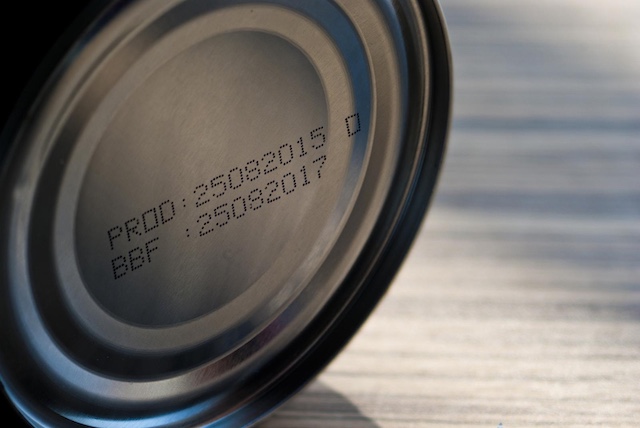Canned food is a staple in many kitchens, appreciated for its long shelf life and convenience. As these products approach their labeled dates, a common concern arises: expired canned food can still be safe to eat, provided the cans are intact and stored properly. Understanding the difference between “best-by,” “use-by,” and expiration dates can help consumers make informed choices.
Many people may hesitate to use canned goods that have surpassed their dates, fearing food safety risks. However, as long as the can is not damaged—meaning no leaks, bulging, or severe dents—its contents might still be perfectly good. Shelf-stable products like canned vegetables, fruits, and meats can often be consumed well past the indicated date if they show no signs of spoilage.
For those curious about the safety of their pantry staples, recognizing the signs of deterioration and knowing how to interpret can labels is essential. It allows individuals to reduce waste and take advantage of the long-lasting nature of these foods.
Understanding Food Expiration Dates
Food expiration dates can be confusing, as various terms are used to indicate the safety and quality of products. Understanding these terms and the regulations surrounding them is essential for making informed decisions about food consumption, particularly canned goods.
Definitions of Expiration Terms
Expiration dates can include several terms, each conveying different meanings. Common terms include:
Expiration Date: This is the last date recommended for the use of the product for optimal quality. After this date, the food may still be safe, but quality may decline.
Best By Date: Indicates when the product will be at its best flavor or quality. Foods can often be consumed after this date, with varied results in taste and texture.
Sell By Date: Used primarily by retailers to manage inventory. It’s not a safety date but rather helps ensure products are sold while still fresh.
Understanding these terms helps consumers assess whether food items, including canned goods, are still safe to eat after these dates.
Regulations and Standards
Food expiration regulations vary by country and product type. In the United States, the FDA does not require standardized expiration dates on food products. However, many manufacturers choose to provide them for consumer guidance.
The USDA oversees specific products, particularly those involving meat and poultry, that have stricter labeling requirements. Manufacturers must adhere to quality standards and ensure that they provide accurate dates based on safety and freshness.
Canned goods often last well beyond their labels, influenced by factors like storage conditions and can integrity. Knowing these regulations helps consumers make judgments based on safety rather than solely on labels.
Factors Affecting Canned Food Shelf Life
Several key elements contribute to the longevity of canned food. These include the preservation methods used during canning, the conditions under which the cans are stored, and the integrity of the packaging itself. Each of these factors plays a significant role in determining how safe and edible expired canned food is.
Preservation Methods
Canned foods undergo specific preservation methods that enhance their shelf life. These methods typically involve high-temperature processing, which kills bacteria, yeasts, and molds that could spoil the food.
Key Preservation Techniques:
- Heat treatment: Ensures the food is sealed in an anaerobic environment.
- Acidification: Used in high-acid foods like tomatoes to prevent the growth of harmful bacteria.
These techniques allow certain foods to remain safe for consumption well beyond their expiration dates when handled correctly. For instance, low-acid foods, like meats and vegetables, can last significantly longer than acidic counterparts.
Storage Conditions
The environment in which canned food is stored can dramatically impact its shelf life. Cans should ideally be kept in cool, dry areas, away from direct sunlight.
Important Storage Tips:
- Temperature: Ideal storage should be between 50°F to 70°F (10°C to 21°C).
- Humidity: High humidity can cause rusting on cans, compromising their seal.
Maintaining these conditions helps in preserving the quality of the food inside. Exposure to heat or moisture can lead to spoilage, even if the can appears untouched.
Packaging Integrity
The integrity of the can itself is crucial for safety. Dented, bulging, or rusted cans can indicate that the seal has been compromised. Such damages allow air and bacteria to enter, increasing the risk of food spoilage.
Conditions to Watch For:
- Dents: Can affect the seal and lead to contamination.
- Bulges: Often indicate gas production from bacterial growth.
- Rust: Can weaken the can structure and breach the seal.
Inspecting the packaging prevents consumption of potentially unsafe food. Properly sealed cans can maintain their contents for many years if undamaged.
Health Risks of Expired Foods
Consuming expired foods can lead to various health risks that should not be overlooked. Among the most significant concerns are foodborne illnesses, including the potential for dangerous conditions like botulism, particularly in canned goods. Understanding these risks is essential for informed food choices.
Foodborne Illness
Foodborne illnesses are caused by consuming contaminated food. When food passes its expiration date, it may harbor bacteria, viruses, or other pathogens. Certain foods, especially proteins such as meat, dairy, and even some vegetables, are prone to spoilage.
Symptoms of foodborne illness often include:
- Nausea
- Vomiting
- Diarrhea
- Abdominal cramping
These symptoms can range from mild to severe, sometimes requiring medical attention. Proper storage and handling can mitigate these risks, but caution is advised when consuming expired products.
Botulism and Canned Goods
Botulism is a rare but severe illness caused by the bacterium Clostridium botulinum. This bacterium thrives in low-oxygen conditions, making improperly sealed or damaged canned goods particularly risky. Symptoms of botulism can include:
- Difficulty swallowing
- Muscle weakness
- Double vision
If someone suspects botulism, seeking immediate medical help is critical, as the condition can be life-threatening. It’s essential to inspect canned goods for any signs of spoilage, such as bulges or leaks, before consumption. When in doubt, it is safer to discard any questionable items.
Identifying Unsafe Canned Food
Canned food can remain safe for a time after its expiration date, but it is vital to know how to identify signs of spoilage. Several physical cues and sensory tests can indicate whether canned food is no longer safe to consume.
Visual Inspection Cues
When examining canned food, certain visual indicators can signal potential spoilage. Look for the following:
- Dents or Leaks: Any damage to the can, such as deep dents or leaks, may compromise the seal, allowing bacteria to enter.
- Rust: Signs of rust can indicate potential contamination. Rusty cans should be discarded.
- Bulging Ends: If the ends of the can are bulging, it could mean that gas produced by bacteria is building up inside, which is a sign of spoilage.
- Mold: Presence of mold, either on the lid or around the rim, suggests the food inside is unsafe.
Engaging in a thorough visual inspection is essential for ensuring food safety.
Smell and Taste Tests
If the can passes visual inspection, next, odors can provide crucial information about its safety. Here are key considerations:
- Off Odors: Open the can and take a cautious sniff. A sour or foul smell is a strong indicator of spoilage. Safe canned food typically has a neutral scent.
- Taste Testing: If the food smells acceptable, a small taste can confirm its safety. However, if there is any doubt, it is safer to avoid tasting the food.
It is important to err on the side of caution when assessing canned food, as even a tiny amount of spoiled food can lead to food poisoning.
Best Practices for Consuming Older Canned Foods
When considering the consumption of older canned foods, specific guidelines and recommendations help ensure safety. Proper evaluation of the food’s condition is crucial for avoiding health risks.
Safe Consumption Guidelines
Check the Can Condition: Inspect the can for signs of damage such as dents, rust, or bulging. If any of these are present, discard the can immediately.
Examine Contents: Upon opening, observe the color, texture, and smell of the food. Discard any food that has an off odor, unusual appearance, or mold.
Follow Dates: While many canned goods remain safe beyond their expiration dates, certain items like high-acid foods (tomatoes, fruits) should generally be eaten within 1-1.5 years of their expiration. Refer to guidelines for specific food types.
Taste Test: If everything looks and smells fine, taste a small amount. If it tastes off, do not consume it.
Recommendations for High-Risk Groups
High-risk groups, including pregnant women, elderly individuals, and those with compromised immune systems, should exercise extra caution.
Consult a Professional: It is advisable for these individuals to consult with a healthcare provider before consuming older canned foods.
Stick to Best-By Dates: High-risk groups should adhere strictly to the best-by dates, avoiding foods that have exceeded these dates unless absolutely certain of safety.
Consider Alternative Options: Fresh or frozen alternatives may be safer choices for high-risk individuals. Canned products should not be the go-to option in these scenarios.
By following these guidelines, consumers can make informed decisions about canned food safety.
Alternatives to Disposal
When dealing with expired canned food, there are various responsible options to consider that promote sustainability rather than simple disposal. Engaging in recycling and exploring creative uses can significantly reduce waste and benefit the environment.
Recycling and Sustainability
Recycling expired canned food is an effective way to minimize environmental impact. Most canned goods are packaged in metal, which is highly recyclable.
Residents should check local guidelines for recycling cans. Typically, the process involves:
- Emptying and rinsing the cans to ensure no food residue remains.
- Removing labels if required by local recycling programs.
- Placing the cans in designated recycling bins.
Participating in community recycling initiatives can also boost sustainability efforts. Many organizations promote the recycling of metals, turning old cans into new products, thereby conserving energy and resources.
Creative Uses
There are numerous creative avenues for repurposing expired canned food. While consumption might not be an option, the cans themselves can be transformed into useful items.
Some ideas include:
- Planters for small plants or herbs, adding a rustic touch to home decor.
- Candle holders by inserting small candles or tealights into cans.
- Storage containers for small household items like nails or craft supplies.
Art projects can also utilize old cans. They can be painted or embellished to create unique decorations. These alternatives not only reduce waste but also provide a unique way to engage in DIY activities.
Conclusion
Determining the safety of expired canned food involves several important factors. Canned goods can remain good long after the expiration date if stored properly.
Key considerations include:
- Condition of the Can: Inspect for any dents, rust, or bulging. Damaged cans can indicate spoilage.
- Storage Conditions: Canned foods should be kept in a cool, dry place to maintain their quality.
- Signs of Spoilage: Look for off smells, unusual colors, or changes in texture.
While many canned foods are safe to eat beyond their expiration dates, it is essential to use careful judgment. Manufacturers use dates as guidelines, primarily for quality rather than safety.
Research indicates that some canned foods can last for years if they remain sealed and undamaged. For more information on the safety of canned food past its expiration date, refer to resources like this article.
Keeping these factors in mind can help individuals make informed choices regarding expired canned goods. Awareness of proper inspection techniques and storage can enhance food safety practices.

